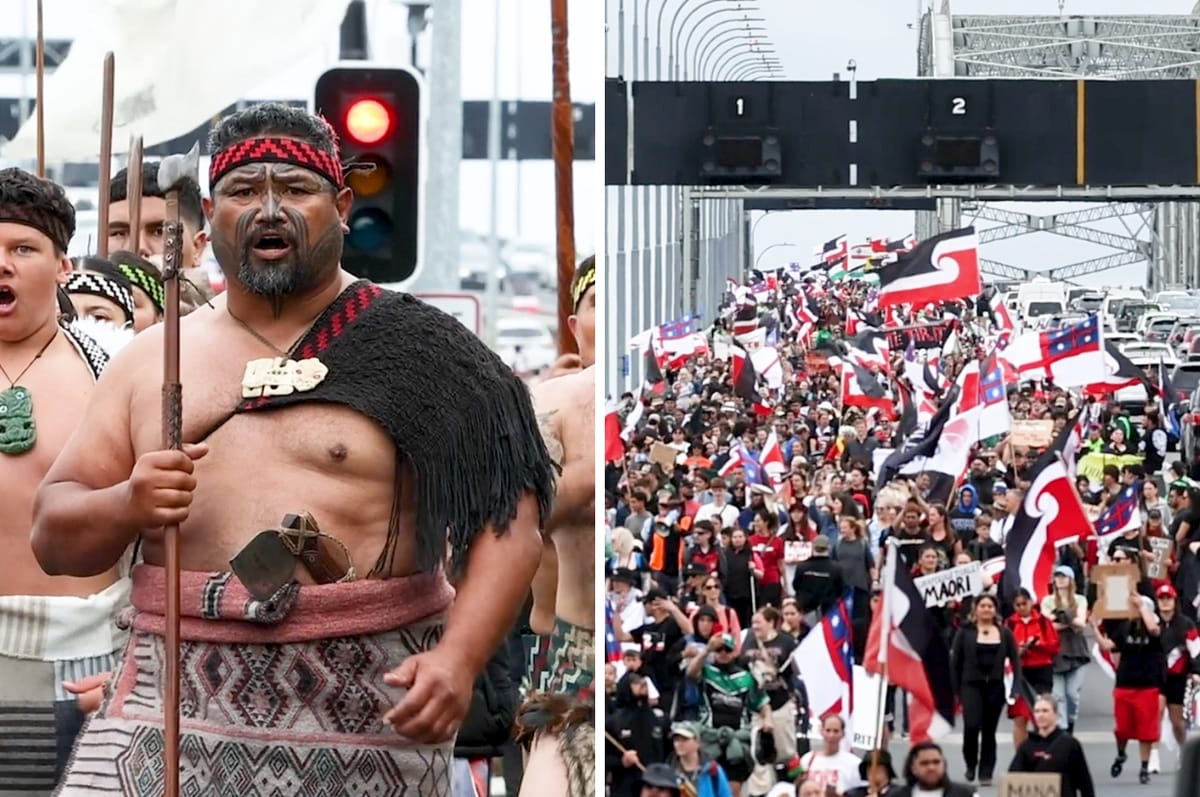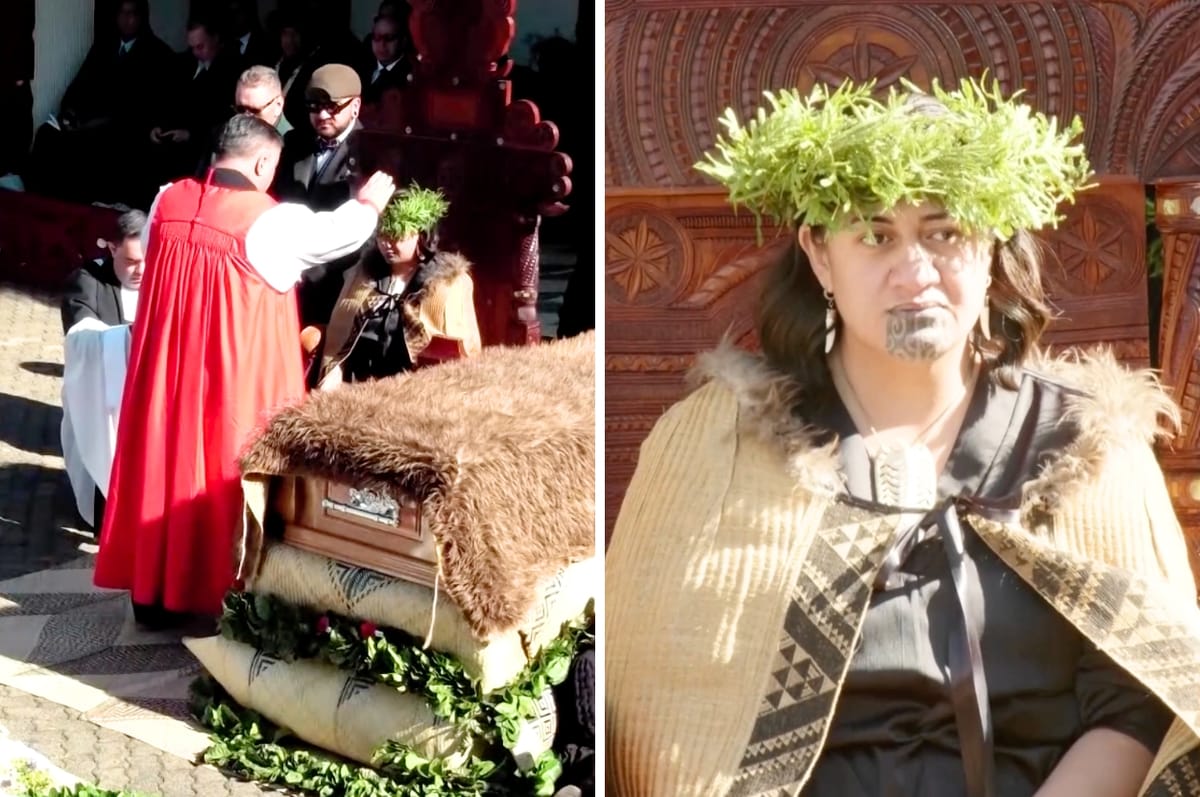Tens Of Thousands Of New Zealanders Marched For Nine Days To Protest A Bill To Roll Back Indigenous Māori Rights
The new Treaty Principles Bill would reinterpret the Treaty of Waitangi, a foundational document in New Zealand.

Tens of thousands of New Zealanders marched for nine days to protest a bill that would roll back Indigenous Māori rights.
The new Treaty Principles Bill would reinterpret the Treaty of Waitangi, a foundational document in New Zealand.
The Waitangi Treaty, known as Te Tiriti, was signed in 1840 between Māori chiefs from various tribes in New Zealand’s north island and the British Crown.
Its goal was to establish British governance while protecting Māori rights and land.
There is an English and a Māori version of the treaty, which have differences in translation and meaning.
Over the years, New Zealand’s parliament and courts have looked to the wider intention, or spirit of the treaty, to define its principles.
They have interpreted it to mean governance is a partnership between Māori and the New Zealand government.
This has led to unique rights and protections for Māori that are now enshrined in law.
But the new Treaty Principles Bill now seeks to redefine the Waitangi Treaty’s principles.
Critics say this may misinterpret its original intent and undermine Māori rights.
Māori communities also weren’t properly consulted about the bill before it was introduced, which is seen as violating the principles of partnership stated in the treaty.
The bill also wants to affirm that all New Zealanders are equal under the law.
This would mean the Māori could no longer be recognized for their unique status and rights as Indigenous people.
And it will reverse decades of progress New Zealand has made in recognizing and addressing historical injustice against the Māori.
As the bill headed to its first reading, tens of thousands of people began a nine-day march, called a “hīkoi” in the Māori language, in protest on Nov. 10.
They began in Cape Reinga, the country’s northwestern most point, and Bluff, the southernmost town, and marched to the capital, Wellington, in the north island, with 42,000 people rallying in front of Parliament on Tuesday Nov. 19.
Since taking power in Nov. 2023, New Zealand’s right-wing government has begun rolling back Indigenous rights.
It announced plans to close the Māori Health Authority, Te Aka Whai Ora, set up by former prime minister Jacinda Ardern’s government and change the names of some departments from Māori to English.
Health experts have said the move will be particularly damaging for Māori communities as they have higher smoking rates and associated health risks.
Prime minister Christopher Luxon’s National Party initially backed the Treaty Principle bill, which was introduced by the ACT party in its coalition.
But following criticism and public protests over the bill, Luxon has now criticized it as “overly simplistic” and said he won’t back it further.
The bill will now move onto the next stage, when the public can submit their feedback.
After this, it will go to the parliament for a second reading, when it is not expected to pass without the support of the other parties in the coalition..
More On Māori Rights In New Zealand












